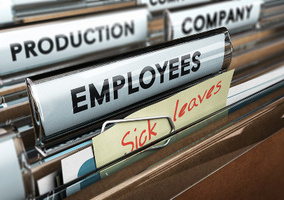International development organisations must make bold changes if they are to stay relevant in the face of challenges like the climate emergency and criticism over “neo-colonialism”, a former deputy chief executive of Oxfam has warned.
Penny Lawrence was speaking during a panel discussion at Civil Society Media’s NGO Insight event on Tuesday. The session addressed how the traditional “top-down” model of international aid is coming to be seen as outdated, with INGOs under pressure to give up their power and change their ways of working.
Lawrence was deputy chief executive of Oxfam for three-and-a-half years before resigning in 2018 following the Haiti scandal. Since then she has been working as a consultant and conducting research into the future of INGOs.
Lawrence said the world is changing “very fast”, highlighting the climate emergency and discourse around whether international aid is being run in a neo-colonial manner. “There’s a lot of rhetoric in our sector about supporting national local organisations, but there’s really no action of significant proportions whatsoever, very little power transfer,” she said.
She added that INGOs must look at how much power sits in the top team, though she warned that the INGOs that have tried to address this through new international structures have ignored organisational design and the need to be able to make “speedy decisions”.
Focus on income
Elsewhere, Lawrence criticised INGOs for being overly focused on income as a measure of success. “Large organisations do have power but they describe that power in terms of their size and capability. But their income not necessarily their impact.
“If you want to challenge that, then just ask yourself, what are the stories of success in my organisation? What do we celebrate? A large contract being gained? That is more common than a significant impact that we have.”
She also argued that INGOs need to diversify their business models. “Relying on grants and contracts drives the wrong behaviours. And anyway, it is going to come to an end, and I reckon pretty soon”, she said.
A new type of leadership
Lawrence acknowledged that making change is “difficult”, but emphasised the need to be “brave and courageous”. She called for a different type of leadership, including one that is more feminist.
She added that “80-90 per cent” of the 27 chief executives she had spoken to for her research believed that what is blocking INGOs in internal. “It’s ourselves that is preventing this,” she said.
Lawrence said she had “failed miserably” in trying to lead change in her roles at Oxfam and VSO, but had learnt a huge amount from the journey. “A lot of people say it needs evolution; we need to understand where we are and then incrementally change. And I think I have tried that all of my career, and that’s one of the reasons it hasn’t worked.
“Other people are saying actually you need revolution, just get rid of the large INGOs altogether, start again. Start-ups are certainly being incredibly creative in that space, but what a waste when you've got the amazing brands and recognition we have with the Oxfams, the Save the Childrens and the Wateraids.
“Is it really beyond our ken to be able to change ourselves to use those brands and services for the people we really seek to serve?”
‘Panic at the top’
Also speaking on the panel was Marie Staunton, who recently took up the role of chair at ActionAid UK. She agreed that change is needed from the “heritage of colonialism”, urging INGOs to look at who is making decisions, where they are making them and who they are making them for.
In response to a question from the audience, she added that INGOs do seem to be taking this challenge seriously. “I'm seeing the conversation happening much more at the top of organisations than it ever did.
“There was always a lot of push and shove, often coming from the frontline of organisations. I think now there’s a bit more of a panic at the top, which is a good thing.”
|
Related items












